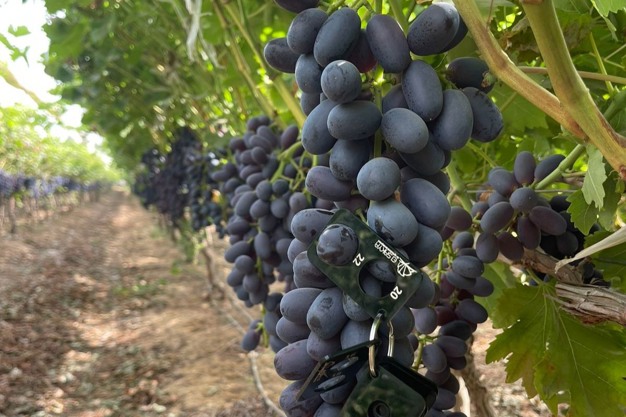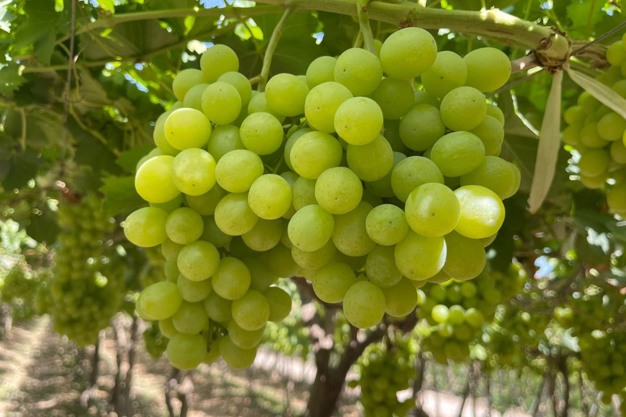The Egyptian table grape campaign continues in a complicated production and marketing configuration, with mixed success. Volumes are down, but the season is longer. Demand is increasing, but prices are not keeping pace. The geopolitical situation is causing major logistical hurdles, but is much worse for competitors in India. All in all, the Egyptian table grape sector is doing well, but it is skating on thin ice.

Louay Elkout, co-founder of the Egyptian Growing Organization, which grows table grapes among other crops, gives his insight into this year's campaign. According to the grower, the season is experienced differently, depending on whether one is a grower or an exporter. He explains: "This year is considered as good as last year for exporters, as demand has increased and programs have remained stable. For growers, on the other hand, volumes are lower than last year in almost all varieties. The very warm winter affected tree fertility and bunch weight. Volumes are down by up to 25% on last year."
Elkout continues: "As growers, this year's early harvest [in May with white seedless and red seedless] has enabled us to extend the season, even if volumes are lower. Therefore, returns are higher than last year for growers. On the other hand, our costs are 30% to 40% higher than last year as well. We were unlucky in that the devaluation of the Egyptian pound came just after we had purchased packaging materials at high prices, which reduced our revenues. Overall, we did not encounter any major quality problems, as evidenced by the very low number of complaints we received from our customers this year. That said, the yield and quality of early white grapes were better than those of red grapes. In the mid-to-late season, production was higher in most regions, and demand was stronger than last year."
For exporters, the balance sheet is better, as they benefit from a combination of favourable circumstances. Elkout: "The early start to the season helped maintain a steady flow and stable prices. Egyptian grapes arrived on the market at a time when there was a shortage. Prices are almost the same as last year, but exporters benefited from the devaluation of the currency. They also benefited from calm competition, as the Red Sea crisis prevented Indian grapes from reaching Europe."

Market-wise, "this season is characterized by a more pronounced European demand for white and mixed grapes", says the grower. "Due to the shortage of grapes before the Egyptian campaign, we have seen more extensive export calendars than last season and high demand since week 22, the second week of the campaign. Europe, the UK, and Africa have been very dynamic, while the Far East market is slower than last year due to the war in Gaza and the Red Sea crisis. The newer varieties are in greater demand on all markets, and growers and exporters are seeing their revenue higher in these varieties."
On a fragile balance, the table grapes sector is doing well, but not without difficulties. Tensions in the region cast a shadow over neighbouring countries and seriously disrupt logistics. "This is the case for all fresh fruits and vegetables," says Elkout. "Egypt wants to increase its exports, but we are faced with unstable logistical routes and higher costs. At the start of the table grapes campaign, for example, we found major problems in trucking to ports. Hundreds of trucks were sent to Gaza with aid and got stuck at the border for a long time."
"We need to have a better mapping of our markets, old and new. We need more logistics options, including fast vessels that can reach the market earlier to avoid dumping in Europe (it usually takes 12-15 days for a container to reach Rotterdam from Egypt)."
For more information:
Louay Elkout
Egyptian Growing Organization
Tel: +20 100 110 0003
Email: [email protected]
